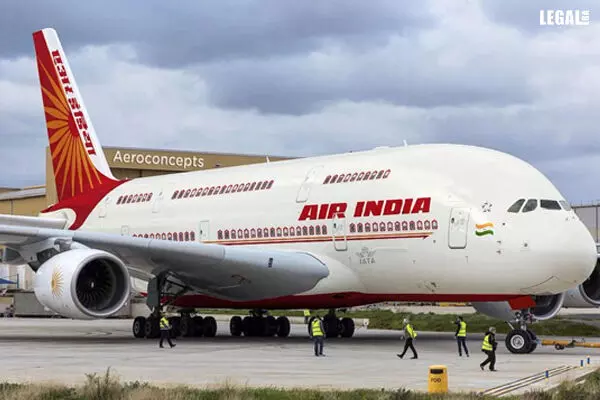- Home
- News
- Articles+
- Aerospace
- Artificial Intelligence
- Agriculture
- Alternate Dispute Resolution
- Arbitration & Mediation
- Banking and Finance
- Bankruptcy
- Book Review
- Bribery & Corruption
- Commercial Litigation
- Competition Law
- Conference Reports
- Consumer Products
- Contract
- Corporate Governance
- Corporate Law
- Covid-19
- Cryptocurrency
- Cybersecurity
- Data Protection
- Defence
- Digital Economy
- E-commerce
- Employment Law
- Energy and Natural Resources
- Entertainment and Sports Law
- Environmental Law
- Environmental, Social, and Governance
- Foreign Direct Investment
- Food and Beverage
- Gaming
- Health Care
- IBC Diaries
- In Focus
- Inclusion & Diversity
- Insurance Law
- Intellectual Property
- International Law
- IP & Tech Era
- Know the Law
- Labour Laws
- Law & Policy and Regulation
- Litigation
- Litigation Funding
- Manufacturing
- Mergers & Acquisitions
- NFTs
- Privacy
- Private Equity
- Project Finance
- Real Estate
- Risk and Compliance
- Student Corner
- Take On Board
- Tax
- Technology Media and Telecom
- Tributes
- Viewpoint
- Zoom In
- Law Firms
- In-House
- Rankings
- E-Magazine
- Legal Era TV
- Events
- Middle East
- Africa
- News
- Articles
- Aerospace
- Artificial Intelligence
- Agriculture
- Alternate Dispute Resolution
- Arbitration & Mediation
- Banking and Finance
- Bankruptcy
- Book Review
- Bribery & Corruption
- Commercial Litigation
- Competition Law
- Conference Reports
- Consumer Products
- Contract
- Corporate Governance
- Corporate Law
- Covid-19
- Cryptocurrency
- Cybersecurity
- Data Protection
- Defence
- Digital Economy
- E-commerce
- Employment Law
- Energy and Natural Resources
- Entertainment and Sports Law
- Environmental Law
- Environmental, Social, and Governance
- Foreign Direct Investment
- Food and Beverage
- Gaming
- Health Care
- IBC Diaries
- In Focus
- Inclusion & Diversity
- Insurance Law
- Intellectual Property
- International Law
- IP & Tech Era
- Know the Law
- Labour Laws
- Law & Policy and Regulation
- Litigation
- Litigation Funding
- Manufacturing
- Mergers & Acquisitions
- NFTs
- Privacy
- Private Equity
- Project Finance
- Real Estate
- Risk and Compliance
- Student Corner
- Take On Board
- Tax
- Technology Media and Telecom
- Tributes
- Viewpoint
- Zoom In
- Law Firms
- In-House
- Rankings
- E-Magazine
- Legal Era TV
- Events
- Middle East
- Africa
Supreme Court seeks response from Central Government and Air India Ltd. on appeal against Bombay High Court order- after Air India's privatisation

Supreme Court seeks response from Central Government and Air India Ltd. on appeal against Bombay High Court order- after Air India's privatisation
The Supreme Court sought responses from the Central government and Air India Limited on an appeal against a Bombay High Court order passed in RS Madireddy and another vs. Union of India and other dated 20 September 2022, that ruled that the writ petitions filed the by employees against the airline over salary and promotion dues were not maintainable given the airline's privatization.
The division bench comprising of Justices BR Gavai and Vikram Nath issued notices, but ordered that the name of the former Air India chairman be deleted from the list of respondents.
Previously, the writ petitions had been instituted by persons formerly employed by Air India Ltd as members of its cabin crew force against the respondents- Union of India and Air India Ltd for alleged violations of Articles 14, 16 and 21 of the Constitution of India on account of stagnation in pay as well as non-promotion.
The question before the Bombay High Court was whether it was an invariable rule that a writ petition had to be decided on the basis of the facts as they were on the date of its institution or whether intervening/subsequent event(s), having a fundamental impact on exercise of jurisdiction for granting relief by this Court, may render the writ petition non-maintainable?
The High Court, relying on various judgments of the Supreme Court and High Courts, noted that the issue of maintainability of writ petitions owing to privatization of a company was no longer res-integra and therefore observed that although the petitions were maintainable when they were instituted, the privatization of Air India took it beyond the court's jurisdiction to issue a writ, order, or direction to the company.
However, the High Court had clarified that the time of pendency of the case would not be counted for calculating limitation period in case the petitioners wished to pursue a different remedy in accordance with law, while disposing the petitions.
Aggrieved by the same, the employees approached to the Top Court by way of the appeal.



